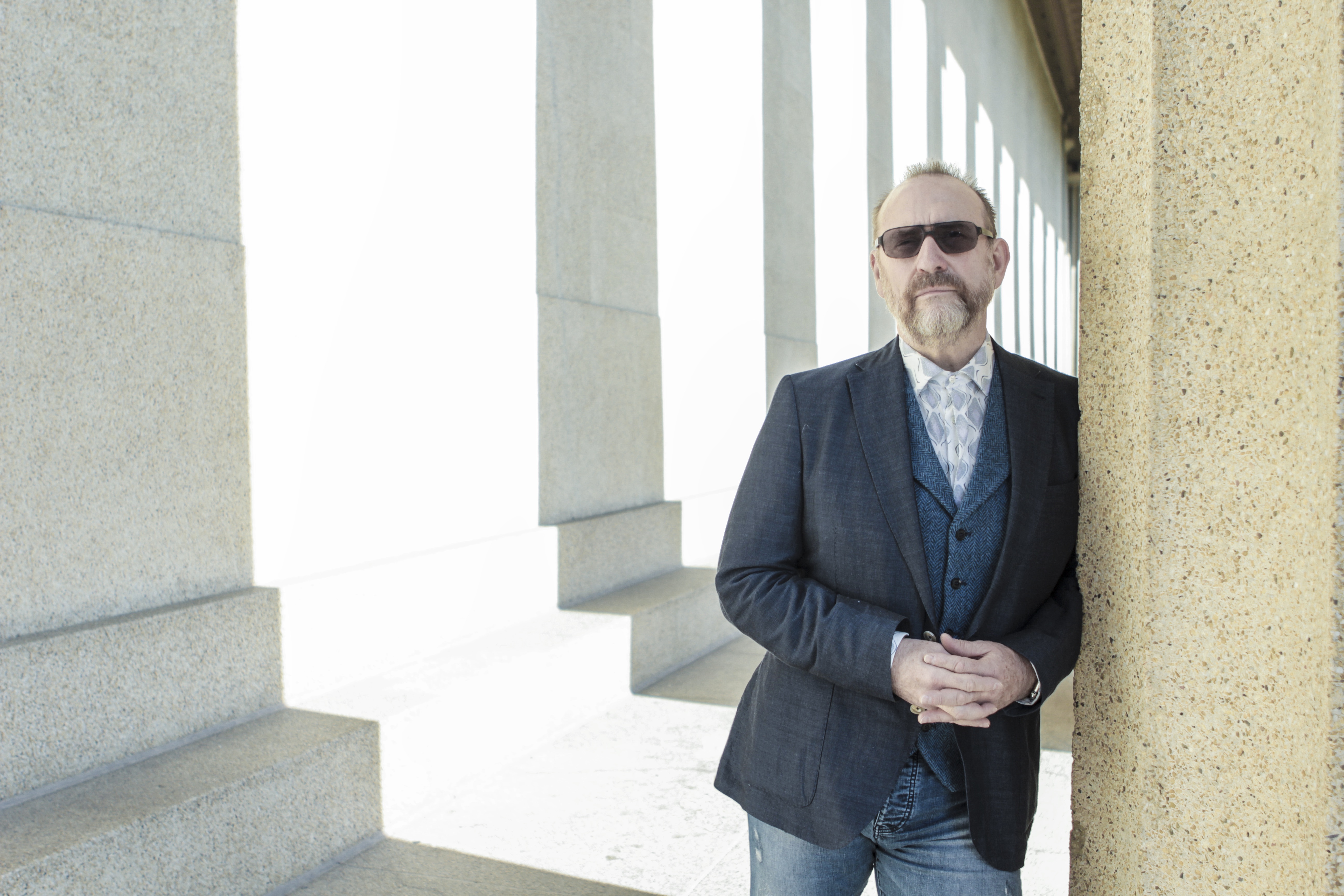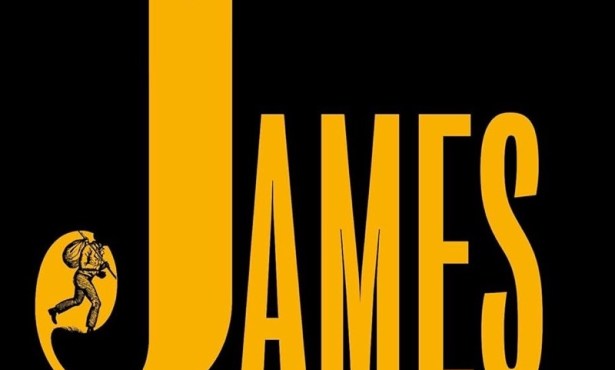Colin Hay at the Lobero
Former Men at Work Frontman Plays for Australia

Colin Hay, he of Men at Work and solo career fame, has called Los Angeles home for just over three decades now. But a large part of his heart goes back to the land down under (to quote his tune “Down Under”), where the Scottish-born singer spent his formative teen-into-twentysomething years.
Naturally, Hay has been especially concerned and compassionate regarding the devastating wildfires presently wreaking havoc in many parts of Australia. To that end, he has set up a series of special “meet and greet” events on a current tour that brings him to the Lobero Theatre Thursday, February 27, proceeds from which will benefit the NSW Rural Fire Service and the efforts to contain and battle raging fire conditions.
Fire in Australia engages many dimensions for Hay. Among the threatened and damaged areas is the south eastern coastal zone around the village of Cobargo, where Hay once owned a rugged slice of land — and where he actually wrote the mega-hit-to-be “Who Can It Be Now” in the late ’70s. In more recent Hay news, his original song “What’s My Name?” — dedicated to Ringo Starr, with whose All-Starr Band Hay toured in the past two years — has become the title cut of Starr’s album of last year.
What follows are edited excerpts from a recent phone interview with the man, now 66 and still very much at work.
You are making efforts to raise funds and awareness about the Australian wildfire scourge, in connection with land near Cobargo, and a property where you actually penned “Who Can It Be Now?” Has this tragedy stirred up a memory of that period and place? I always have beautiful memories from that time and that place. It was a very important part of my life. I had a girlfriend called Linda, who became my first wife. We bought this piece of land up there in the late ’70s. It was very extensive. It was bush land.
We had a friend who bought some land up there. They were hippies—“let’s get away from the straight world,” so to speak. My intention was always to avoid the real world as long as I possibly could.
Linda and I would go down there as often as we could. There’s nothing to do except play acoustic guitar. That’s where I wrote “Who Can It Be Now?” Cobargo was virtually decimated by the last fires, which took out a lot of the main street. I researched it a little bit and feel happy about contributing to that recovery fund. You just feel a little more connected when you feel it on a personal level.
That is such an iconic song, and a collective ear worm by now, which has become timeless. Do you ever reflect on that contrast of the innocent process of writing it and then it evolving into this huge phenomenon? Yes, it’s crazy. When I wrote the song, it took about 40 minutes. Linda, my girlfriend told me “that will be your first hit.” I believed her. You have those moments when you think, “well, that’s a simple thing, but it’s got some kind of charm to it.”
Those kinds of things happen in stages. You get hints of not only what something is, but what it could be, at different times. For example, you write the song and then you play it for someone, and they like it. So you go “that’s cool.” Then you play it out in a pub or something, and people respond to it, and they like the song. That’s a big deal, as well. There are different stages of the phenomenon, if you like.
Then we put the song out before we even made the album, and it went to #2. So you think “that’s great. Lots of people like it.” And then it became a worldwide hit when the album got released and was #1 in the U.S. and lots of different parts of the world. That’s another incredible thing to happen. And then, like you say, 40 years or so later, it’s still being played. What is that?
I guess there is something timeless about it. People like to hear things they know. I’m in supermarkets wandering about and I hear Greg’s (Greg Ham, who died in 2012) saxophone line, but then I’ll think about him and my memories and emotions are tinged with a strong element of sadness. I always think about him when I hear that line.
Unlike other artist who rest on laurels, you continually keep writing new material and making new albums, such as 2017’s Fierce Mercy. Is that just in your DNA, the drive to keep creating? I guess so. I don’t really think about all that much. My mother and father always said that you have to work. There’s a bit of that in there. From the age of 14, on school holidays, I always worked.
And from the age of about 14, I remember I always liked sitting around and getting musical ideas and putting them together, writing songs. It wasn’t even something where I consciously thought “oh, I’m gonna’ be a songwriter.” It just interested me and I liked doing it. I’ve just always done that. It kind of almost a situation where you think “ok, now I’ve had breakfast. Now what?” That’s how I like to go to work.
I’m very lucky. I have a lot of gratitude that I don’t have to go to another job, and say “oh, nice tie, Bob,” and deal with other people. I’m very lucky in that regard. But I like the feeling of writing songs and recording. It makes you feel pretty good. I enjoy it.
And now your songwriting skill has been directed towards an actual Beatle, with the title track of Ringo Starr’s What’s My Name? That’s a fantastic tune—funny and yet deep in some way. How does that connection feel?
I was really happy. Look, it’s terribly exciting to have written a song for a Beatle, the truth be known. I wrote that song in 2008, a long time ago. Early last year, after we were on the road, Ringo called and said ‘I hear you’ve got a song for me. Come up and we’ll record it.” I said “well, you haven’t even heard it.” He said “oh, I know it’ll be good.” (Laughs).
Then I had to go up to his house and play it for him, which was another surreal experience. I was sitting in a room and he said “well, do you wanna’ hear the song?” “Yeah let’s hear it.” Then he says “I love it. Let’s do it.” So we recorded it.
Dare I say, I think it is perfect. Ever since I’ve been doing that gig in his band, he would come out and say “what’s my name?” I thought “he’s got to have a song called that.” So now he has. I’m glad he likes it.
Do you feel like this is a good and productive period in your long, multi-chaptered musical life? Yeah, it’s pretty good, I have to say. I have a great, beautiful wife and a kind of a simple life, in a way, or as simple as we could make it. We’ve got a bunch of cool friends and I get to play music on a daily basis.
The challenges are really more external, with what’s happening politically or environmentally and so forth. There’s a lot of horror going on in the world. But I temper that sometimes by reading Stephen Pinker and reading Enlightenment Now and getting his perspective on it, which is that if you just look at what’s going on now, it’s still an awful lot better than what was going on a thousand years ago. It’s small steps forward, but they’re forward, nonetheless.
4•1•1 | Colin Hay, February 27 at 8 p.m., Lobero Theatre, $46-$106 for “meet and greet” fund-raiser. www.lobero.org.



